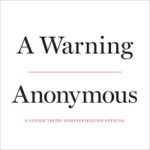
“If you want to skip reading my more detailed explanation, the answer is: No. Even when political news is strongly felt, there will likely never be a good time to shift your investments — neither in reaction nor as a defence. First, no matter how certain one or another outcome may seem, how the market is going to respond to the news remains essentially unknown. Second, by the time you’ve heard the news, it’s already priced into the market anyway.”
Fast-forward to 2020. To say the least, a few things have changed! But my advice remains the same: From one election to the next, other factors have exhibited a far greater impact on investment returns than which person or party holds the U.S. presidency. Whether leadership is more or less conservative, largely efficient markets have usually figured out a way to shift and grow, either way.
As we can see in this interactive chart from Dimensional Fund Advisors, these results are well-documented. They also make a lot of sense, given something called “stage-one and stage-two thinking.”
Thinking in Stages
Stage-one and stage-two thinking are terms popularized by economist Thomas Sowell in his book, “Applied Economics: Thinking Beyond Stage One.” Basically, before acting on an event’s initial (stage one) anticipated results, it’s best to engage in stage-two thinking, by first asking a very simple question:
“And then what will happen?”
By asking this question again and again, you can more objectively consider what Sowell refers to as the “long-run repercussions to decisions and policies.”
Who will next occupy the various seats of power around the globe, and what might the results be? Stage-two thinking helps us see past the usual proliferation of stage-one predictions that call for anything from financial ruin to unprecedented prosperity.
As financial author Larry Swedroe describes in a US News & World Report interview, “Stage one thinking occurs when something bad happens, you catastrophize and assume things will continue to get worse … Stage two thinking can help you move beyond catastrophizing … [so you can] consider why everything may not be as bad as it seems. Think about previous similar circumstances to disprove your catastrophic fears.”
Timeles lessons in terminal uncertainty
In the 2020 U.S. presidential race, we’re seeing prime examples of both dire and exuberant financial forecasts, presumably premised on who wins the election. The truth is, nobody has a clue what all the combined market-moving forces have in store for us in the near term, because nobody can know the answer to Sowell’s convoluted market-moving question: And then what will happen? Continue Reading…







